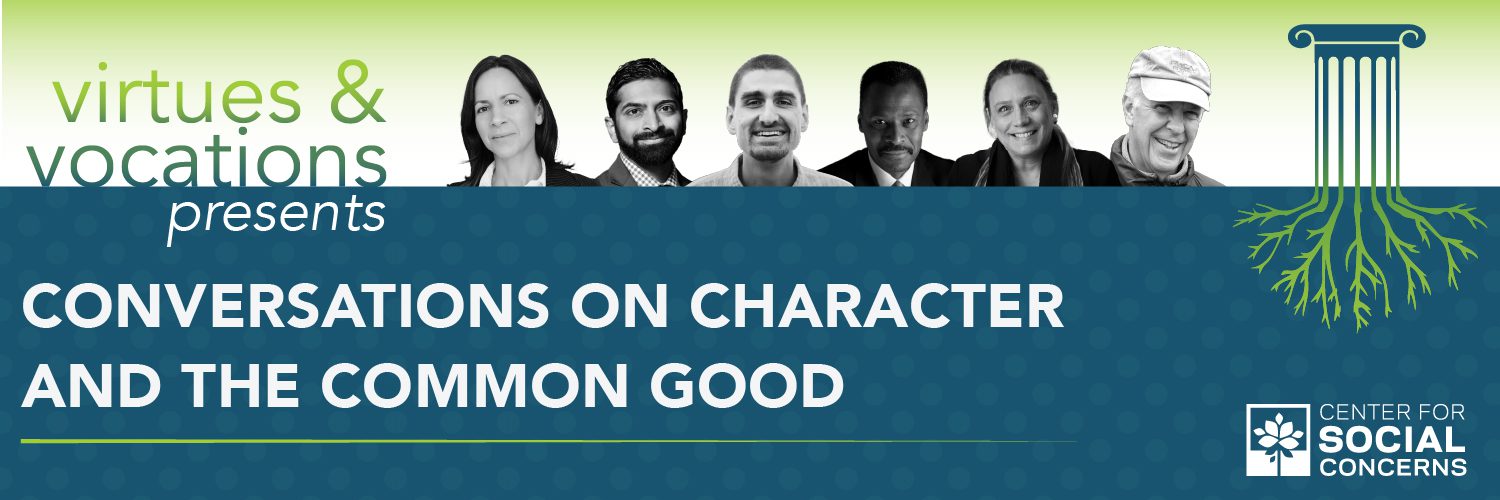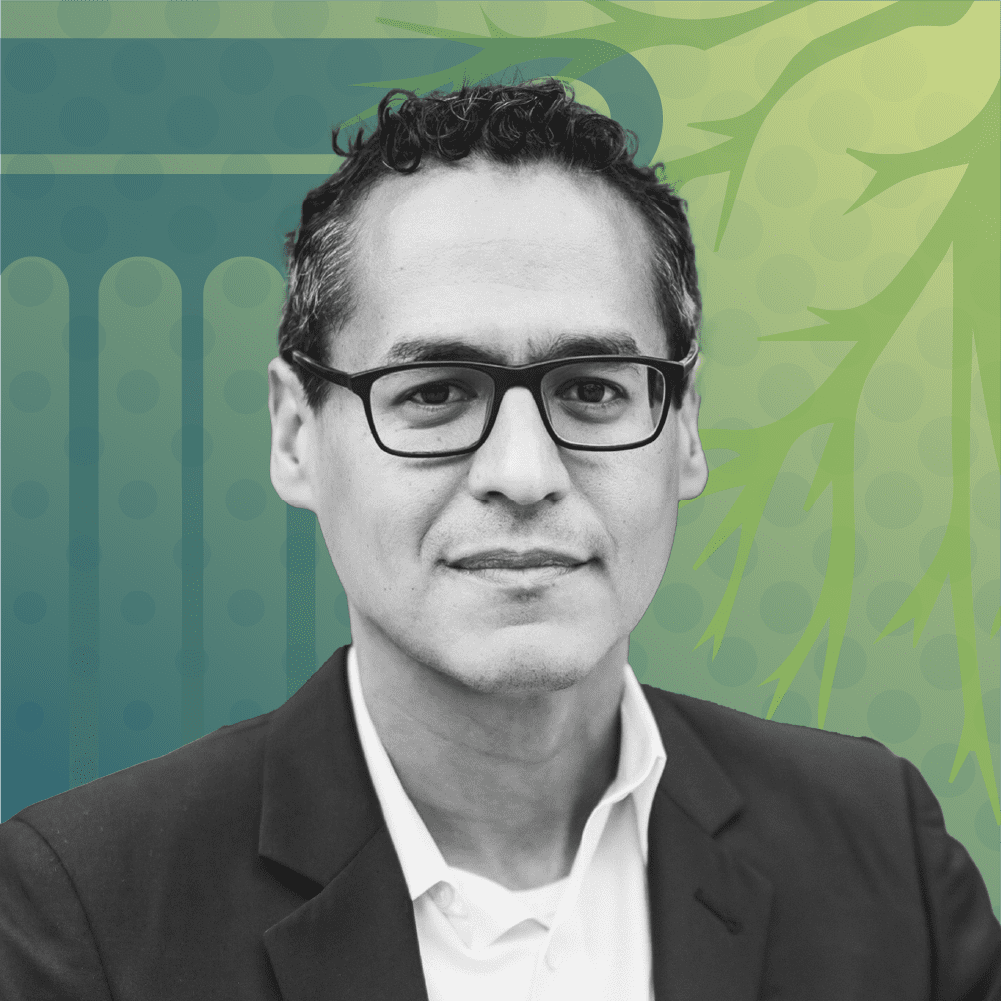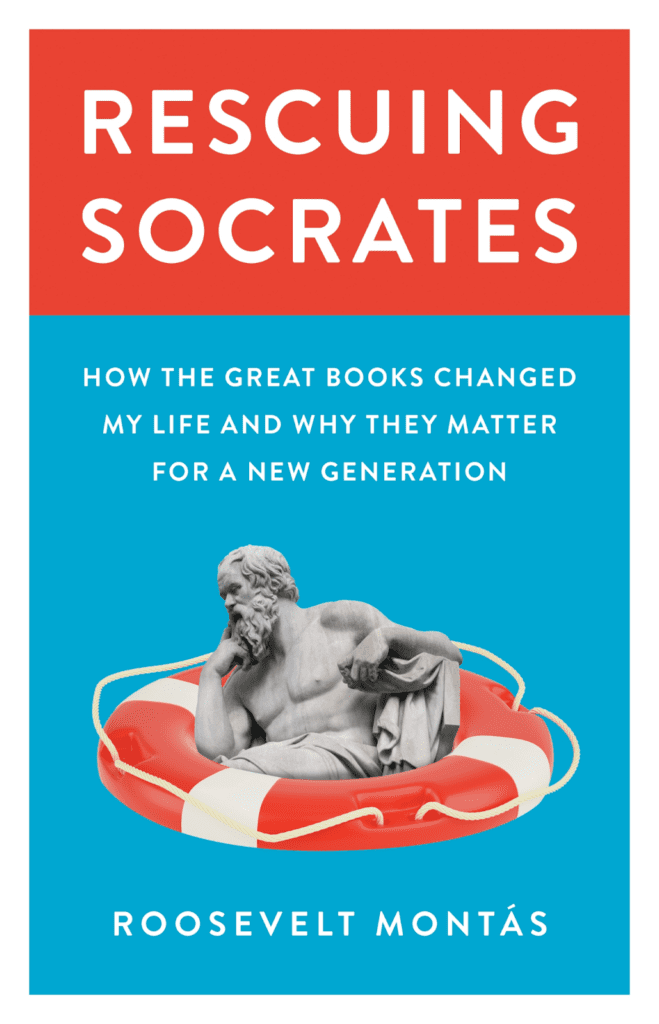Roosevelt Montás on Freedom, Citizenship & Liberal Learning

As part of the Virtues & Vocations series Education for Flourishing: Conversations on Character & the Common Good, we are pleased to welcome Roosevelt Montás, author and Director of the Freedom and Citizenship Program at Columbia University.
Meet the Speaker: Roosevelt Montás
Roosevelt Montás is Senior Lecturer in American Studies and English at Columbia University. He holds an A.B. (1995), an M.A. (1996), and a Ph.D. (2004) in English and Comparative Literature from Columbia University. He was Director of the Center for the Core Curriculum at Columbia College from 2008 to 2018. Roosevelt specializes in Antebellum American literature and culture, with a particular interest in American citizenship. His dissertation, Rethinking America: Abolitionism and the Antebellum Transformation of the Discourse of National Identity, won Columbia University’s 2004 Bancroft Award. In 2000, he received the Presidential Award for Outstanding Teaching by a Graduate Student. Roosevelt teaches “Introduction to Contemporary Civilization in the West,” a year-long course on primary texts in moral and political thought, as well as seminars in American Studies including “Freedom and Citizenship in the United States.” He is Director of the Center for American Studies’ Freedom and Citizenship Program in collaboration with the Double Discovery Center. He speaks and writes on the history, meaning, and future of liberal education and is author of Rescuing Socrates: How the Great Books Changed My Life and Why They Matter for a New Generation (Princeton University Press, 2021).
View the Live Event
Monday, January 22, 2024 12:00 pm

As part of the Virtues & Vocations series Education for Flourishing: Conversations on Character & the Common Good, we are pleased to welcome Roosevelt Montas, author and Director of the Freedom and Citizenship Program at Columbia University.
Book: Rescuing Socrates: How the Great Books Changed My Life and Why They Matter for a New Generation

What is the value of a liberal education? Traditionally characterized by a rigorous engagement with the classics of Western thought and literature, this approach to education is all but extinct in American universities, replaced by flexible distribution requirements and ever-narrower academic specialization. Many academics attack the very idea of a Western canon as chauvinistic, while the general public increasingly doubts the value of the humanities. In Rescuing Socrates, Dominican-born American academic Roosevelt Montás tells the story of how a liberal education transformed his life, and offers an intimate account of the relevance of the Great Books today, especially to members of historically marginalized communities.
Montás emigrated from the Dominican Republic to Queens, New York, when he was twelve and encountered the Western classics as an undergraduate in Columbia University’s renowned Core Curriculum, one of America’s last remaining Great Books programs. The experience changed his life and determined his career—he went on to earn a PhD in English and comparative literature, serve as director of Columbia’s Center for the Core Curriculum, and start a Great Books program for low-income high school students who aspire to be the first in their families to attend college.
Weaving together memoir and literary reflection, Rescuing Socrates describes how four authors—Plato, Augustine, Freud, and Gandhi—had a profound impact on Montás’s life. In doing so, the book drives home what it’s like to experience a liberal education—and why it can still remake lives.
Article: “The Defenders of Classical Education Are Destroying It”, The Atlantic
Introduction: In recent months, those of us who care about the humanist tradition in education have watched with dismay as right-wing politicians clear space for what they dubiously call “traditional education,” often linking their efforts to the cause of liberal education and the teaching of the Western canon. Florida Governor Ron DeSantis, who has placed his “anti-woke” education agenda at the center of his emerging national profile, is a case in point. With promises to reform higher education by “aligning core curriculum to the values of liberty and the Western tradition,” he has positioned himself as a defender of liberal education. Christopher Rufo, one of his handpicked appointees to the board of trustees of Florida’s New College, declared that part of the institution’s agenda would include a “shift” to a “classical liberal arts model that provides a distinctly traditional brand of education and scholarship.”
But the right-wing approach to liberal education and the Western tradition is as skewed as the notion among some academics that teaching the classics is tantamount to promoting white supremacy and European domination. In the presumption that the Western canon represents a single perspective, and in other surprising ways, elements of the radical right and the radical left seem to agree. And they are wrong. Only a censored and denatured liberal-arts curriculum can be employed in the service of ideological conformity. In the same way that liberal education does not have specific vocational and professional goals in view, it must also not have predetermined ideological or theological end points. To the extent that it is political, it is so because it cultivates self-determination, freedom of opinion, and personal agency.
To read the full article, please visit The Atlantic website.
Podcast: Roosevelt Montás on Great Books and Intellectual Transformation
From the show notes: In this episode, I am joined by Professor Roosevelt Montás to discuss his new book, Rescuing Socrates: How the Great Books Changed my Life and Why They Matter for a New Generation. Montás, a Dominican-born American academic, makes the compelling case that study of the Great Books is potentially transformative, especially for students from working-class communities or who are members of historically marginalized communities. Montás further argues that the future of the Humanities in this country does not lay primarily in specialized research but in undergraduate education–particularly in general undergrad education. We talk about arguments that Great Books courses are racist, sexist, or otherwise somehow oppressive, and why we think they are dead wrong.
To hear the podcast, please click here.
